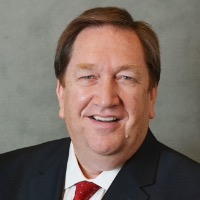Editor’s note: The following op-ed was prepared by John McGahan, President/CEO of the Gavin Foundation, a non-profit organization in the Boston, Massachusetts area that offers residential, community, collaborative, and prevention programs for people in recovery from addiction. This op-ed is part of our Special Series on Managing Addiction during COVID-19, which is generously sponsored by the Greater Boston Council on Alcoholism.
 The Gavin Foundation’s Devine Recovery Center (DRC) has been servicing individuals and families in Boston, Massachusetts for the past eight years. Our values have remained consistent: promoting lifestyle change, individual and community connections, and most importantly, the restoration of dignity. We believe our greatest asset is “recovery capital.” By this we mean people in recovery helping people in recovery – it’s the human connection, the seeing is believing, that brings hope.
The Gavin Foundation’s Devine Recovery Center (DRC) has been servicing individuals and families in Boston, Massachusetts for the past eight years. Our values have remained consistent: promoting lifestyle change, individual and community connections, and most importantly, the restoration of dignity. We believe our greatest asset is “recovery capital.” By this we mean people in recovery helping people in recovery – it’s the human connection, the seeing is believing, that brings hope.
However, the pandemic presented a challenge that was unlike any we had experienced before. When the COVID-19 pandemic hit, the DRC was faced with the task of figuring out how to effectively serve our members while ensuring their safety and the safety of our staff. Closing the Recovery Center was simply not an option. We knew our members needed support now more than ever. Our goal was to help members stay connected and reduce the risk of them returning to destructive behaviors during such a highly stressful situation like a pandemic.
Like many other agencies, the Gavin Foundation adapted by shifting our services virtually. The first thing we did was create a Zoom and Skype account for self-help meetings. Our staff then began calling, texting, and private messaging members to ensure they had access and knew how to utilize these tools in order to stay connected. We then worked with the local recovery community to ensure we had self-help meetings scheduled every morning, noon, and night. For members who did not have access to a computer or a tablet, we secured government and private foundation COVID relief funds to provide them with the necessary technology and tools to support their recovery. While virtual meetings allowed members to attend self-help meetings, the connections made in-person sessions could not be replicated, and we knew we needed to find a way for our members to safely commune together to share their recovery journey.
With this in mind, we cleared the shrubbery in the vacant lot next to the DRC, laid a foundation of crushed stone, permitted, and erected a large 30 x 60 foot tent. We had to run electricity to the tent to power a microphone, speakers, and heaters for the winter months. This allowed us to hold in-person meetings and activities while allowing for social distancing. These meetings were also zoomed out to the recovery community at large. The DRC established safety protocols that included ensuring masks, gloves, and hand sanitizer were available and used by members. We attached a laminated sign to painted wooden blocks that were green on one side and red on the other to indicate if the table/seats were sanitized. To protect members’ privacy, we did not announce individuals by name if they tested positive for COVID but we did announce at meeting/activities and on social media when someone who had been under the tent tested positive. In the cold weather, we would seal up the tent, get it warm, and open two sides up when it came time to start a meeting. Another important piece was contracting with a security company to patrol the site when the center was closed; this was part of our good neighbor policy. The recovery community was extremely grateful to have the personal connections that couldn’t be achieved through the virtual meetings.
Our members’ recovery journey was made a little bit easier through the use of technology and their ability to safely connect with each other in the tent. We got to witness true fellowship and new relationships develop during and/or in spite of the pandemic, as it was people helping people in recovery.
The pandemic taught us at the Gavin Foundation a valuable lesson: Never get comfortable. Things will always change, and it is imperative to be able to adapt regardless of the circumstances. We learned a great deal from the pandemic, and we will take what we learned to grow in the future. Recovery from addiction is difficult but when we all work together it’s amazing what can be accomplished.
In the book As Bill Sees It, Bill W. reminds us that “the essence of all growth is a willingness to change for the better and then an unremitting willingness to shoulder whatever responsibility this entails.” The Gavin Foundation has the responsibility to adapt with the times and obligation to amend how we do things, to ensure that no matter what is happening in the world, our members know that when they are in need of recovery services, the Gavin Foundation will support their path on the road to recovery.
— John McGahan, President/CEO of the Gavin Foundation
Conflict of Interest Statement
Mr. McGahan has no conflicts of interest to disclose of personal, financial, or other benefits that could be seen as influencing the content of this editorial.
What do you think? Please use the comment link below to provide feedback on this article.




